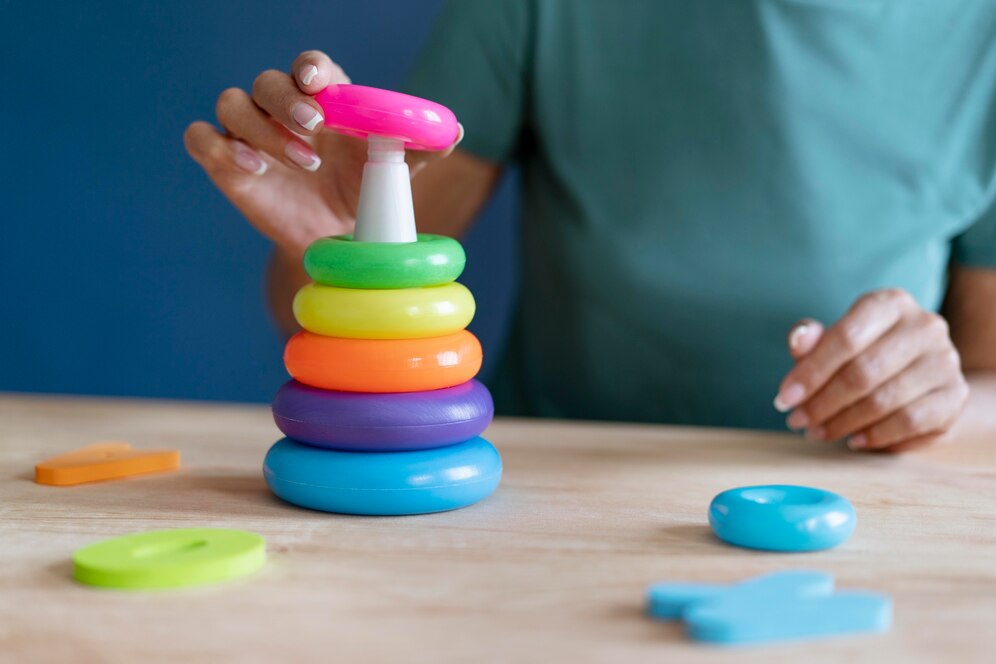Essential Montessori Tools for New Parents

Welcoming a new baby comes with a wave of excitement and questions about providing the best start in life. One approach many parents explore is the Montessori method, renowned for its focus on fostering independence, curiosity, and natural learning from an early age. This educational philosophy emphasizes creating a prepared environment where infants can develop essential skills at their own pace.
Understanding and applying Montessori principles at home can significantly enhance a child’s early developmental journey. Parents are encouraged to provide opportunities for exploration and discovery through carefully chosen materials and activities. These tools not only engage infants but also support their growing needs as they interact with their surroundings.
By incorporating Montessori tools and practices into daily routines, parents can create a space that promotes their child's innate ability to learn and engage with the world. This article reveals essential Montessori tools and offers practical tips to help new parents set up an enriching learning environment right at home.
Understanding Montessori Principles for Early Development
Montessori education is grounded in the belief that children learn best through self-directed, hands-on experiences. This approach emphasizes understanding each child's unique needs and abilities, allowing them to explore and discover at their own pace. For infants, this means providing an environment rich with opportunities for sensory exploration and movement.
The core principles of Montessori aim to foster independence, a love for learning, and self-discipline. By embracing these concepts, parents create a nurturing and supportive environment right from birth. Encouraging exploration allows babies to develop their cognitive, emotional, and social skills more naturally. The focus is not on direct instruction but on guiding infants to explore materials and activities that spark their curiosity.
Montessori environments for infants often include simple yet engaging materials that stimulate the senses. These tools help infants improve their motor skills and promote cognitive development by encouraging them to explore different textures, shapes, and sounds. Through thoughtful interaction with their surroundings, babies gain a sense of confidence and independence that sets the stage for lifelong learning. By understanding and applying these principles, parents can ensure a holistic development approach for their little ones.
Must-Have Montessori Tools for Infants
Equipping your infant's learning environment with essential Montessori tools can support their growth and development. These tools are designed to engage infants' senses and encourage them to interact with their surroundings.
1. Focusing Mobiles: Designed for visual engagement, these mobiles provide contrasting colors and movement that captivate an infant's attention. They help strengthen eye-tracking abilities and concentration.
2. Grasping Toys: Made from natural materials, these toys promote the development of fine motor skills. They encourage infants to practice reaching and gripping, fostering hand-eye coordination.
3. Montessori Balls: Soft, easy-to-grasp fabric balls encourage crawling and movement. They stimulate the baby's ability to chase and catch, building core muscles and coordination.
4. Sorting and Stacking Rings: These toys introduce infants to the concepts of order and categorization. Children learn to sort by size and color, enhancing their cognitive abilities.
5. Sensory Mats: Offering varied textures and colors, sensory mats provide tactile exploration. They stimulate the sense of touch and encourage babies to move and explore.
By having these Montessori tools at home, parents can create an engaging and educational space for their infants. These materials encourage exploration and discovery, nurturing infants' natural curiosity and enhancing their developmental journey.
Setting Up a Montessori-Inspired Learning Environment at Home
Creating a Montessori-inspired space at home encourages your infant’s independence and natural desire to explore. Start by designating a specific area where your child can play and learn freely. This area should be safe, easily accessible, and filled with age-appropriate materials that invite discovery.
Consider using low shelves to store toys and learning materials. This setup allows your child to see and choose what interests them, promoting decision-making skills. Avoid overcrowding the space; instead, offer a limited selection of toys to avoid overwhelming your child and to maintain focus.
Incorporate child-sized furniture such as a small table and chair. This empowers children to interact with their environment independently. A soft rug or play mat can define the play area, making it cozy and inviting for exploration.
Organize toys and tools into baskets or bins so your child can easily return items to their proper place after use. This teaches organization and responsibility from an early age. Natural lighting and simple decorations can complement the area, creating a serene atmosphere that encourages concentration and creativity. By carefully designing this space, you support your child’s development while respecting their autonomy.
Encouraging Parent-Child Interactions with Montessori Activities
Engaging in Montessori activities with your infant not only strengthens your bond but also supports their learning journey. These activities are designed to foster exploration, creativity, and problem-solving skills. There are plenty of simple, enjoyable activities parents can do with their children.
1. Sensory Baskets: Fill a basket with various safe objects that differ in texture, size, and color. Encourage infants to explore these objects, fostering sensory development and fine motor skills.
2. Water Play: Using a shallow basin, allow your child to splash and play with water. Provide cups and spoons for pouring and scooping, promoting hand-eye coordination and understanding of basic physics.
3. Guided Nature Walks: Take your infant on nature walks to observe the environment. Discuss the sounds, smells, and sights around them. This enhances vocabulary and awareness of the natural world.
4. Simple Art Projects: Explore different art materials like non-toxic paints or crayons. Allow your child to create freely, encouraging self-expression and creativity.
These activities not only nurture essential skills but also create memorable experiences that strengthen the parent-child connection. By integrating Montessori philosophy into playtime, parents can enhance their child's educational and emotional development.
Conclusion
Incorporating Montessori principles in your child's early years lays a strong foundation for lifelong learning and independence. By providing an enriching environment and engaging activities, you encourage your infant to explore, imagine, and learn in a way that respects their individuality. A carefully curated space full of purposeful tools supports this journey, giving your child the freedom to make discoveries at their pace.
For parents seeking to create such an environment, our company offers Montessori infant room products that align perfectly with Montessori values. Explore our collection of quality materials designed to foster your infant’s development and curiosity. Check out The Topponcino Company to find tools and materials that support your child's unique path to learning and growth.












